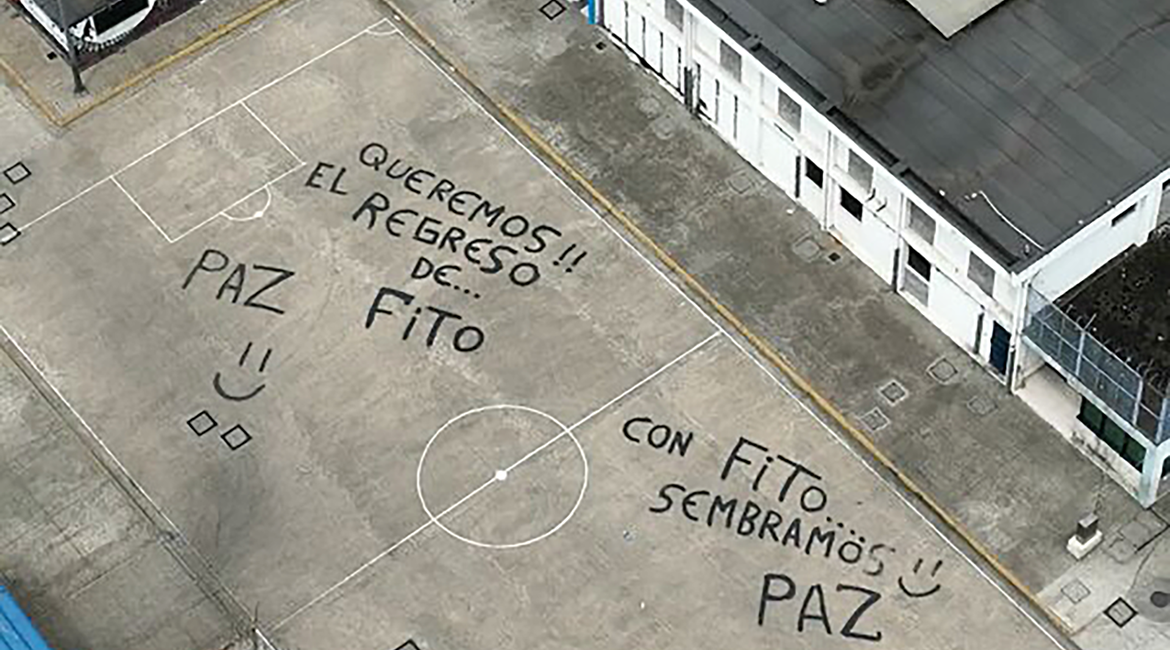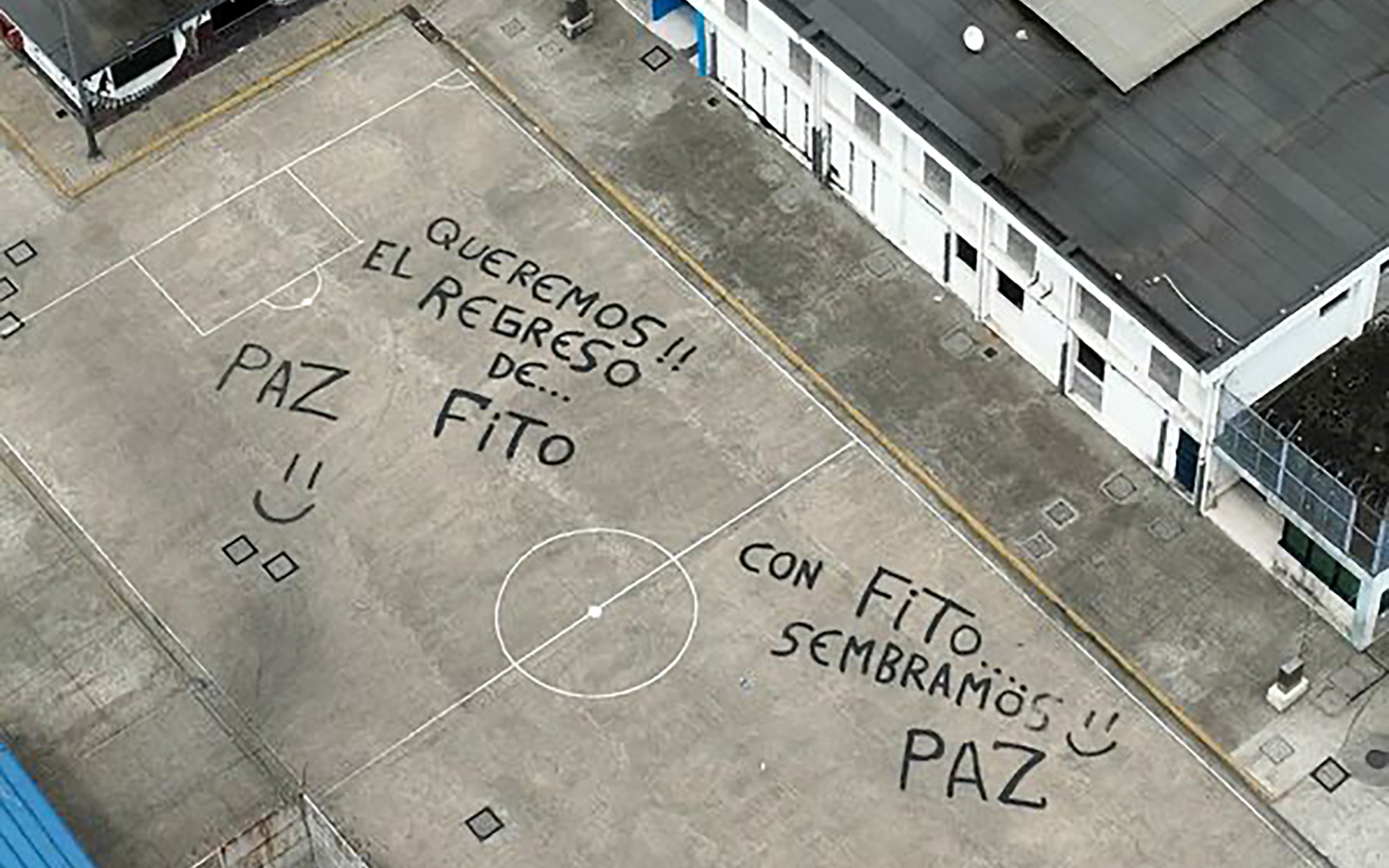
Date Posted: 09-Jan-2024
Author: Jennifer Scotland, London
Publication: Jane's Country Risk Daily Report
Key points
- Event: Ecuador's President Daniel Noboa announced a nationwide state of emergency on 8 January after the leader of the OCG Los Choneros, José Adolfo Macías Salazar (alias Fito), escaped from prison and inmates rioted in five prisons across the country
- Significance: The incidents occurred shortly after Noboa announced new security measures to combat organised crime, such as building maximum-security prisons and relocating OCG leaders
- Outlook:The escalation of OCG activity is almost certainly intended to test Noboa's resolve and dissuade him from implementing hard-line security policies through acts of intimidation
Event
Ecuador's President Daniel Noboa announced a nationwide 60-day state of emergency and overnight curfew on 8 January because of “serious internal commotion” by organised crime groups (OCGs). Ecuador's prison agency, the National Comprehensive Care Service for Adults Deprived of Liberty and Adolescent Offenders (Servicio Nacional de Atención Integral a Personas Adultas Privadas de la Libertad y a Adolescentes Infractores: SNAI), reported earlier that day that inmates had rioted and taken prison guards hostage in at least five out of Ecuador's 36 prisons.
Overnight on 8 January the police reported that vehicles had been set on fire on highways and in petrol stations in the cities of Esmeraldas, Guayaquil, and Quito. The newspaper Metro Ecuador reported on 9 January that during the night OCG members had kidnapped a police officer in the capital Quito.
Early on 9 January videos circulated on social media platform X (formerly Twitter) showing hooded individuals armed with firearms and machetes forcing captive prison guards and police officers to address Noboa and request that he consider their safety and stop his policies targeting organised crime.
The escalation of OCG activity occurred a day after the commander of Ecuador's national police, General César Zapata, informed the press on 7 January that the leader of Ecuadorian OCG Los Choneros, José Adolfo Macías Salazar (alias Fito), was missing from his cell in Guayaquil Regional 8 prison and had likely escaped. The authorities had become aware of Fito's disappearance after they entered the prison to transfer him to maximum-security prison La Roca in Guayaquil earlier that day.

Aerial view showing messages regarding the leader of OCG Los Choneros, José Adolfo Macías Salazar (alias Fito), written by inmates at the Regional 8 prison in Guayaquil, Ecuador, taken on 8 January 2024, a day after Fito is thought to have escaped on 7 January. Following Fito's apparent escape, incidents were reported in several of the country's prisons. (Enrique Ortiz/AFP via Getty Images)
Significance
Noboa had announced a series of measures to combat OCGs earlier in the week. On 2 January Noboa sent 11 questions to the Constitutional Court to be approved for a public referendum, including proposed security measures such as extending prison sentences for organised crime-related offences and allowing the military to support counter-crime operations.
In an interview with Radio Sucre on 4 January, Noboa announced that his government would construct two maximum-security prisons by October to isolate OCG leaders and weaken OCG control of prisons. Noboa said that the prisons would be “exactly the same” as the maximum-security prisons in El Salvador, likely in reference to the mega-prison that was built in El Salvador's Tecoluca in February 2023 with the capacity to house 40,000 inmates, primarily gang members. Noboa added that he had ordered three leaders of the OCG Los Lobos to be transferred to La Roca after Attorney General Diana Salazar attributed death threats made against her on 3 January to the group. The intention to transfer Fito had not been publicly announced. In an interview with Teleamazonas on 8 January, the Secretary of Communication Roberto Izurieta said it was likely that information about Fito's transfer had been leaked, giving him time to escape.
In a video posted on 5 January by the news channel Ecuador Comunicación, a group of individuals claiming to be Los Lobos members denied Salazar's accusations and warned that “there will be civil war” if the government relocated prisoners. They mentioned that the group had formed “an ideological treatise … with many people and organisations”, suggesting an alliance between rival OCGs.
Another video of an unidentified group posted on X by the news portal Aldia Noticias on 7 January relayed a similar message that “there will be attacks, there will be war” if the government pursues hard-line security strategies similar to El Salvador's President Nayib Bukele, who has used measures including an ongoing state of emergency as well as mass trials and arbitrary detentions to combat local gang activity. The individuals in the video warned Noboa that “if you move Fito and the rest of our colleagues to the maximum-security prisons … there will be chaos”.
Outlook
The OCG rioting, kidnapping of prison guards and police officers, and arson are almost certainly intimidation tactics intended to test Noboa's resolve and dissuade him from implementing hard-line security policies similar to those imposed in El Salvador by Bukele. The 5 June 2023 Janes report El Salvador: What lies behind Nayib Bukele's popularity? found that Bukele's strategy had significantly reduced gang activity in El Salvador; however, this had been facilitated by an increase in human rights violations by the state against gang members both inside and outside of prison. To avoid this scenario being replicated in Ecuador, OCGs in the country are very likely to continue to employ intimidation tactics as a show of strength to Noboa and to put his relatively new administration – inaugurated in November 2023 – to the test.
Noboa's response is almost certain to define the rest of his tenure, lasting until 2025. His electoral campaign was centred around reducing Ecuador's homicide rate and tackling organised crime. To date, a lack of communication about his security strategy ‘Plan Fénix' has raised doubts among the public about whether Noboa has a plan. Various actors, including the media, trade unions, and opposition politicians, have criticised the proposed referendum on anti-crime measures as an unnecessary use of public time and money.
Furthermore, states of emergency were the principal methods employed by former President Guillermo Lasso (2021–23) to restore temporary control by authorising the armed forces to patrol the streets and intervene in prisons. However, these measures ultimately failed to reduce crime rates. If Noboa fails to demonstrate new ideas on tackling organised crime and insecurity in the short term, it is very likely that public confidence in his government will drop and lead to protests.
(Note: Items from news/wire services are abstracted from the originals and are not verbatim)






